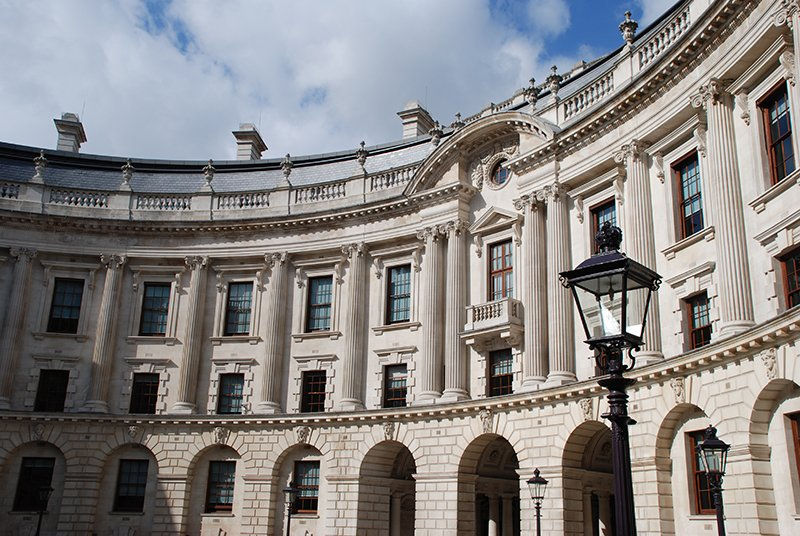Private Security Alienates Youth in West Africa
- Anoushka Singh

- Jul 31, 2025
- 3 min read
Updated: Aug 1, 2025

In nations such as Sierra Leone and Nigeria, companies which offer security services for individuals, public buildings, and private companies have assumed a role parallel to that of the police and military in the public sphere. Job opportunities in private security have increased, which provide a uniquely stable and lucrative source of income from large companies, which are often European. Young people have been increasingly drawn to this field for this reason, unsettling a previous identity of the youth as protesters and drivers of change in these nations, all of whom still struggle against the economic and security focused concerns of a postcolonial environment.
In Nigeria, for example, politics has often been described as the only way to accrue wealth. In rejection of this, popularly adopted national strategies purported by the likes of progressive President Muhammadu Buhari, aim to depoliticise security in an attempt to allow it to be a widely accepted and pervasive tool to foster domestic development. Yet privatisation and relinquishing control over security endeavours in terms of guarding at-risk individuals or companies simply masks the militarisation of these societies. This militarisation takes the shape of increasingly conservative and defeatist attitudes towards protest, as well as increased violence. Though the Nigerian government has historically been irresponsible in managing its military, a shift towards the private sector reveals that a paragovernmental armed class can pose a security risk to vulnerable domestic populations. For example, though it is largely illegal for private security officers to bear arms, black market arms deals are commonplace in the private sector. Thus, neoliberally leaning administrations like Nigeria’s often fall into the trap of prioritising markets over military development in order to capitalise upon their vast natural resources, but fail to understand how these same markets reflect historical and political inequalities rather than being above it all.
It is no surprise that security is increasingly becoming a commodity rather than a right in these societies, but the rigid delineation of a safe versus a vulnerable individual is a cause for concern. Rather than a drive for social and economic change, the lure of financial security amongst an increasingly dangerous physical environment has established a perceived sense of complacency across young people in West Africa, and especially Nigeria. This is disheartening to consider especially due to the strong presence of protest movements, largely led by people under forty, that swept the nation between 1990 to as late as 2020.
This deflation has occurred largely due to the fact that protests, celebrations, holidays, or any event in which large gatherings form have ended in some of the deadliest massacres in the region. This is deeply traumatising and isolating, and further reinforces to companies and individuals a need for private security. This is especially relevant considering that large private security companies are often headquartered in Europe, further reinforcing the idea that Africa is monolithically an inherently insecure environment.
Wars always restructure economies, impacting industries from defence to agriculture. However, when a society enters into a perpetual state of war and thus adopts certain security structures (such as promoting the proliferation of private security companies), social and economic costs skyrocket. In Nigeria, for example, fertiliser use is restricted due to the fact that Boko Haram has utilised it to create weapons. Popular, high-yielding crops such as maize and sorghum cannot be planted in certain regions since it is easy to hide in their fields. Moreover, extenuating factors, out of anyone’s control, can further compound issues; for example, the vast reduction in the size of Lake Chad has decimated farming in the entire region in the past twenty years. This further pushes young people into security oriented careers rather than generational trades or vocations.
On the other hand, it is important not to group the nations of West Africa on the basis of their private security environments alone, as they are obviously not a monolith. It is evident that the common thread between them is not a cultural or environmental issue, rather the highly securitised postcolonial societies developing within each of them. Yet, the alienation of young people from the possibility of social change plagues the entire region for this reason.
Ultimately, the increased securitisation of identity and community in West Africa could be at a point of no return. An identity as a private security actor is perceived as entirely antithetical to that of a nonviolent changemaker. Thus, a form of disenfranchisement has emerged in West African civil society 一 the financial allure of a stable job in private security buys the silence of a physically insecure population.
Illustration by Will Allen/Europinion
.png)



Comments